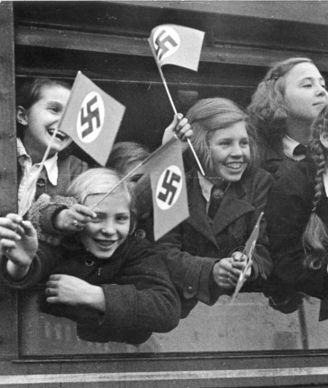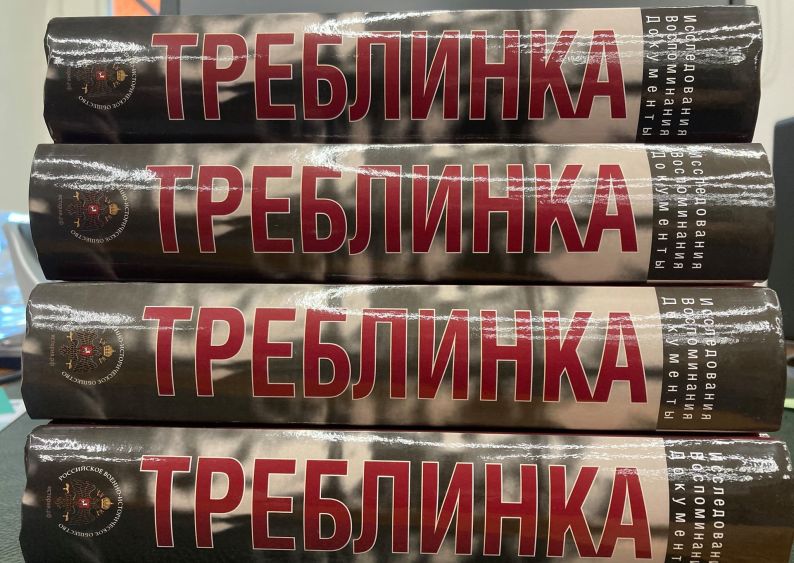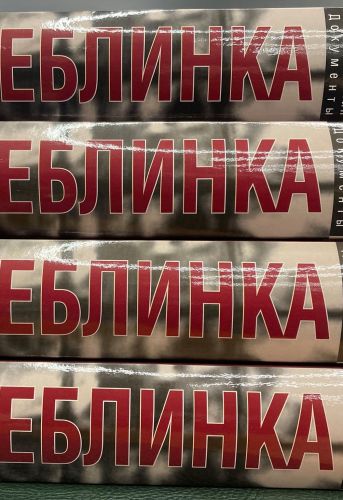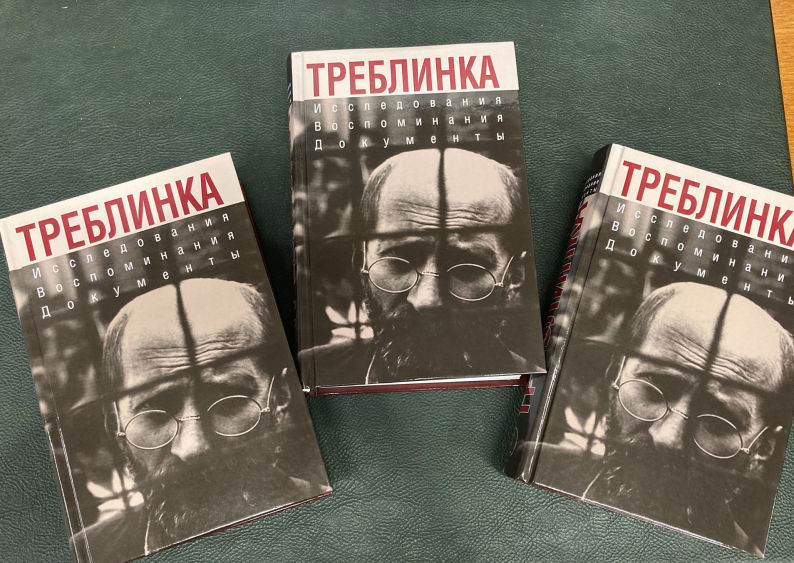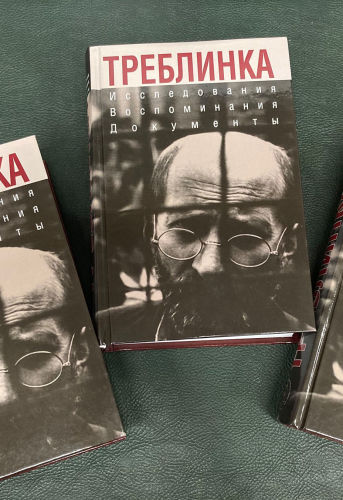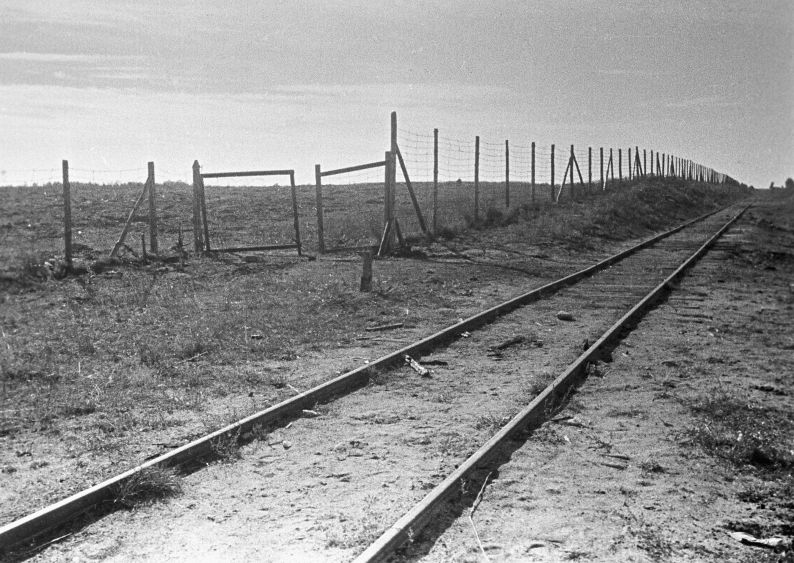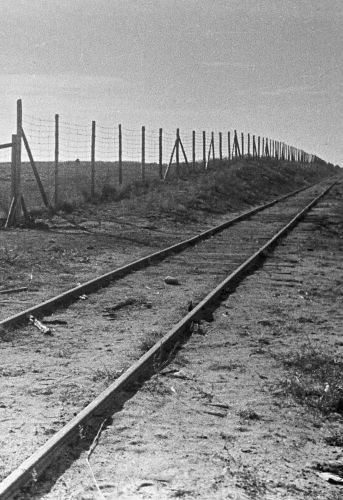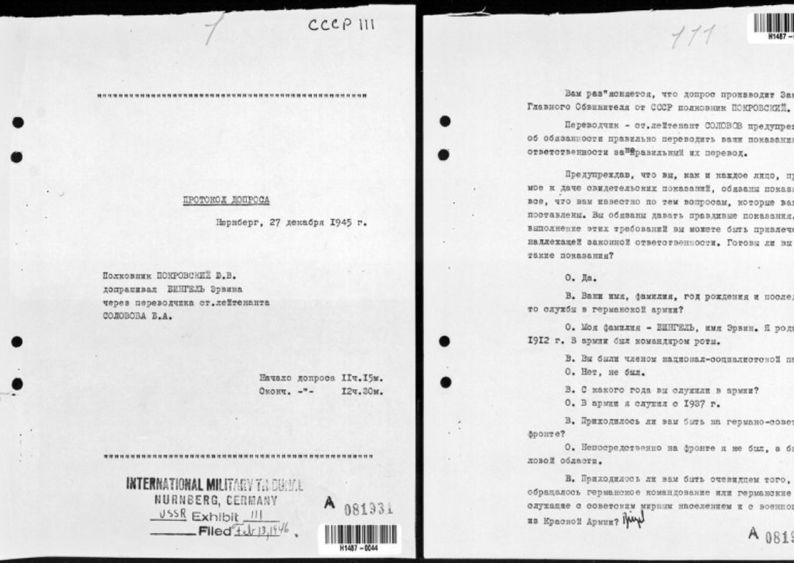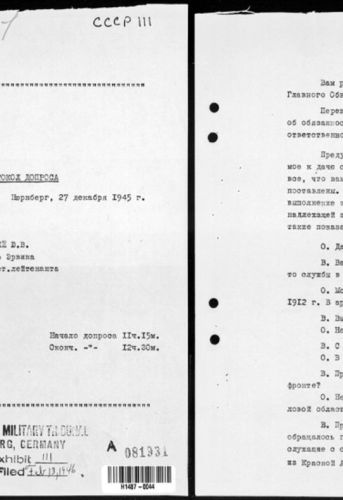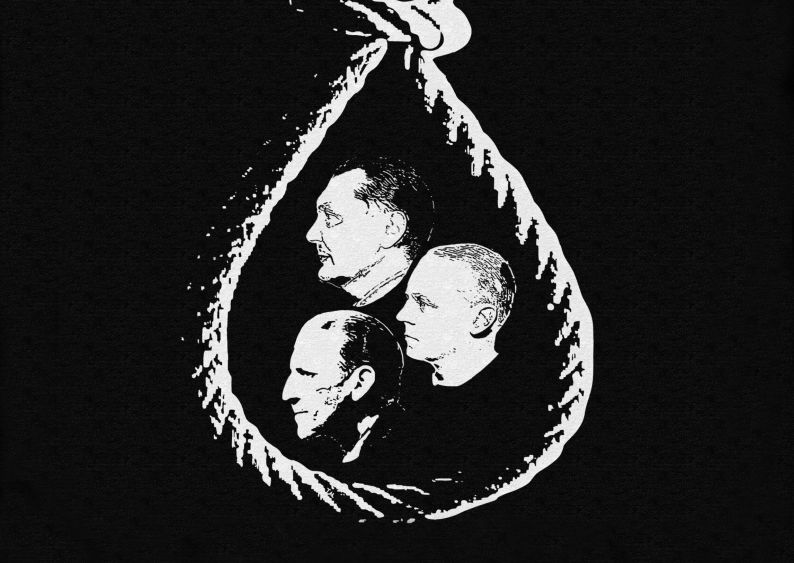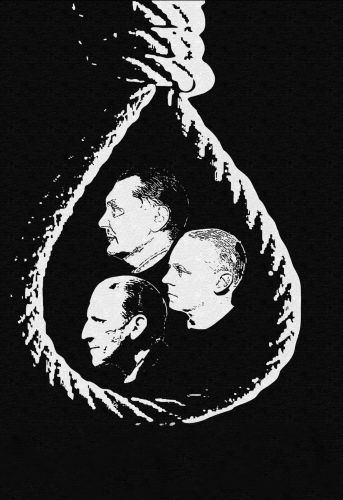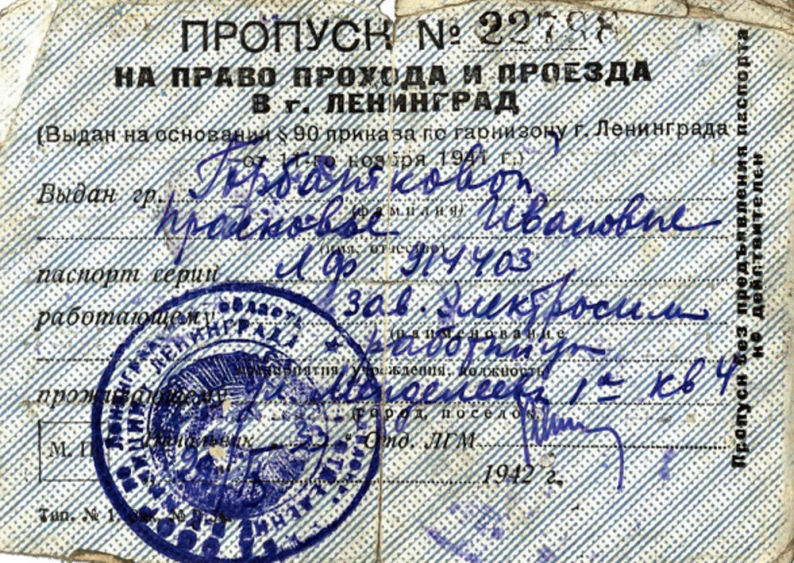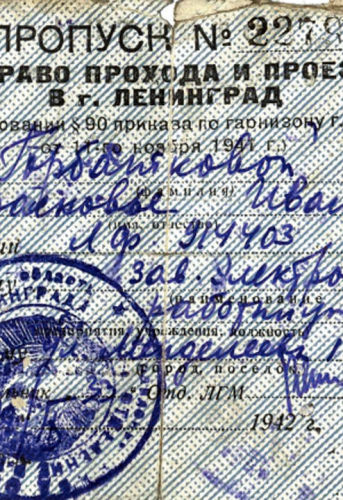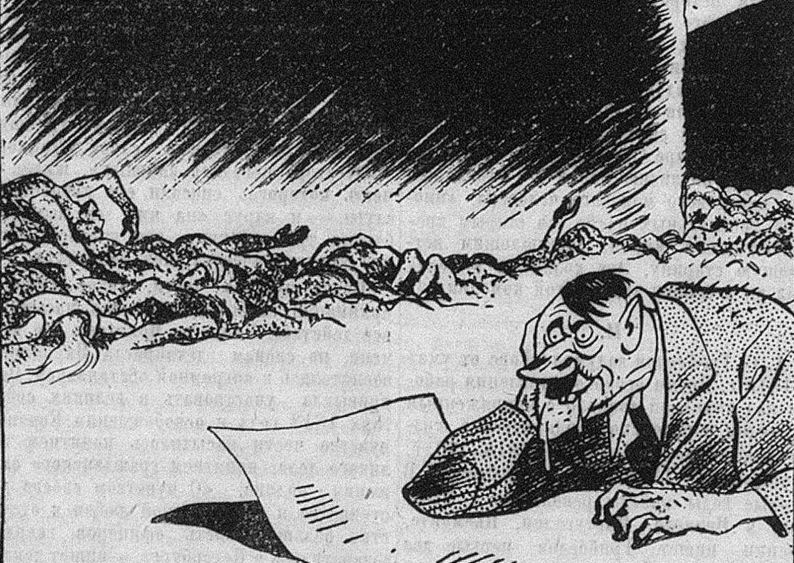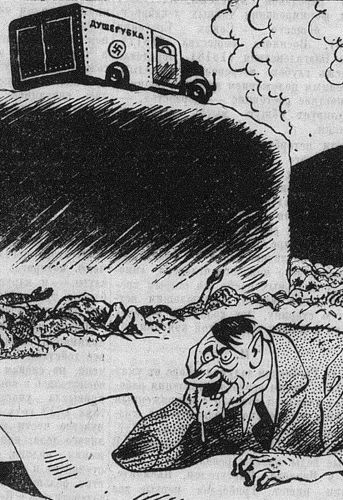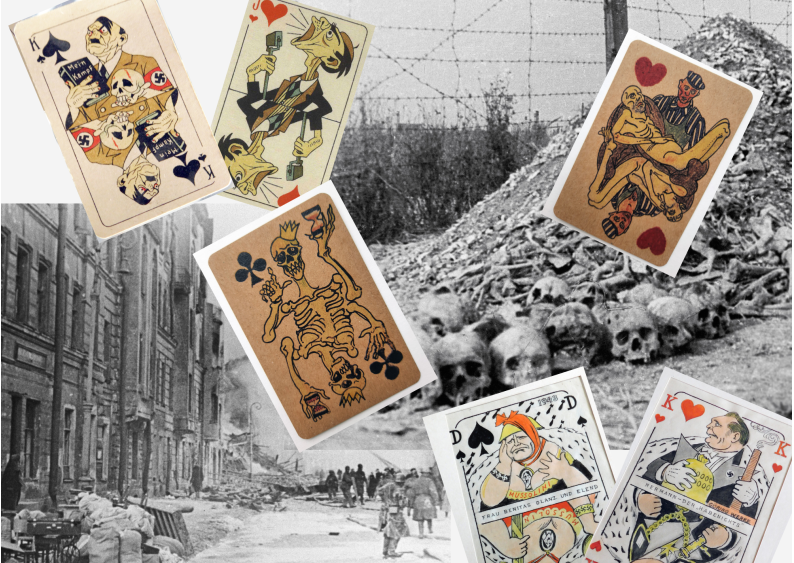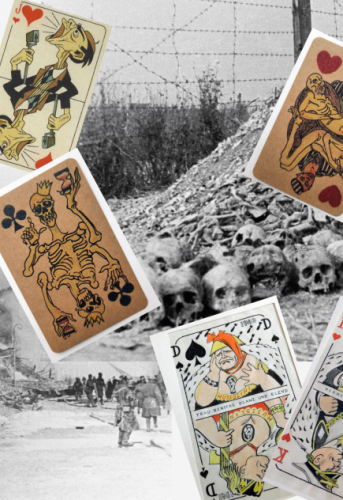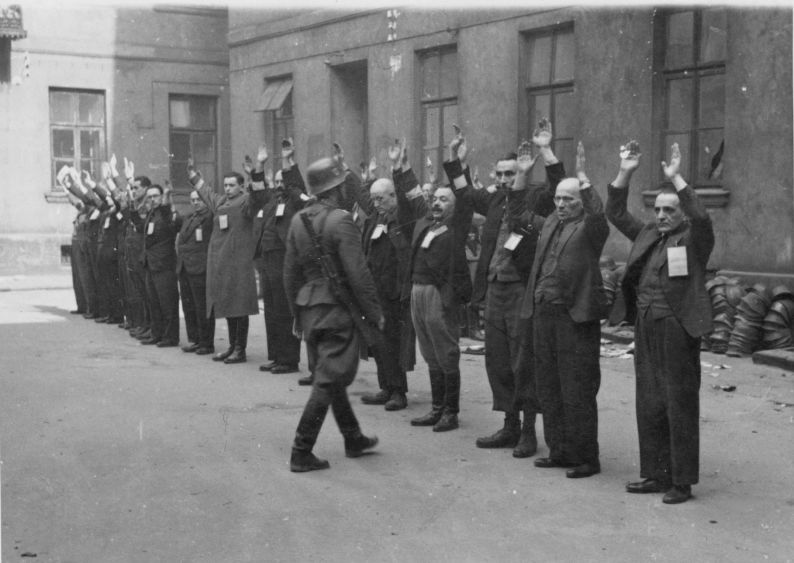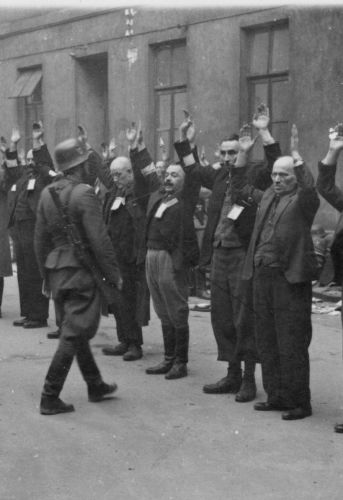Number of the day
people were eliminated by Einsatzgruppen A by October 1941 in the occupied territories of the USSR.
Source:
Philipp Gut "Witness of the century Ben Ferencz: chief prosecutor of the Nuremberg trials and passionate fighter for justice"
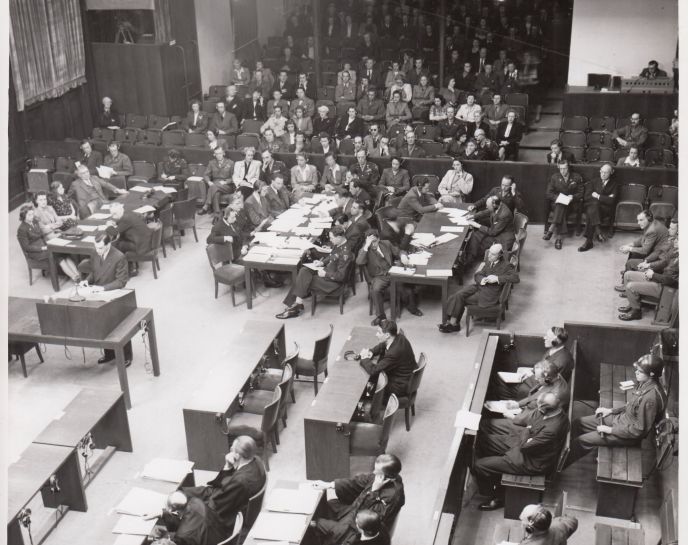
Just Forget About It and Move On?
Why the defendants of the Subsequent Nuremberg Trials were released from prison so easily

Major Books-Evidence of Nazi Crimes
With the publication of this book list the project “Nuremberg. Casus pacis” begins an important final cycle of materials addressed to everyone who wants to know more about the reasons and consequences of the existence of the Third Reich. On the basis of these sources, we have been describing the realities of the Second World War and the Nazi crimes, which were considered and condemned by the Nuremberg Tribunal. Each of these books is worth reading and reflection. We warn you, this is difficult to read - it is only for those who are truly prepared to know the whole truth about Nazism.
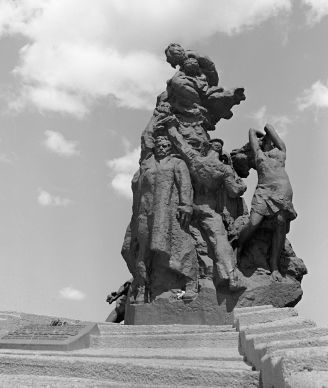
Babi Yar Foundation Calls to Forgive Nazis and Their Accomplices
Natalia Osipova, project manager of “Nuremberg: Casus Pacis”, on Kiev’s ‘Crystal Wall of Wailing’.
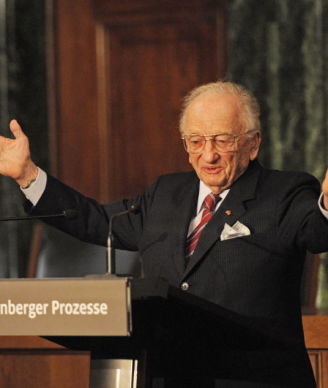
The Last Witness
The editors' team of the “Nuremberg: Casus Pacis” project – together with the Eksmo publishing house – is publishing excerpts from Philipp Gut’s book about Benjamin Ferencz, the man who organised the trial against the SS punitive special units, introduced the word “genocide,” and stood at the origin of the International Criminal Court in The Hague.
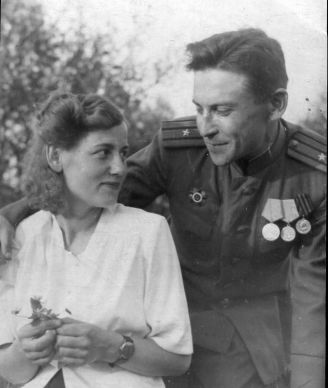
That German Was Our Friend
My grandfather Mikhail Fedorovich Loshchits (1917-2015) went through the war from the first to the last day. He served as a military journalist on the Leningrad front. He was an instructor in the political department of a division, a secretary, and then an editor of the divisional newspaper “In the line of duty”. The story “On the Last Day of the War” tells a little-known episode – the surrender of a group of German troops ambushed in the so-called Courland Pocket in western Latvia. It was only on 8 May that fierce fighting stopped there, however, some units resisted until the end of the month.
THE ANNALS OF GLORY AND SHAME
CELEBRITIES FOR AND AGAINST NAZISM

Lida Baarova
Czech actress, German film star, and mistress of Nazi propaganda minister Joseph Goebbels.

Leni Riefenstahl
German actress, director and photographer, propaganda classic, Hitler's favorite.

Gabrielle (Coco) Chanel
World famous French fashion designer, "myth woman" and one of the most status collaborators.

Edward VIII and Wallis Simpson
Aristocratic collaborators: the British king, who abdicated, and his wife, for whose sake he did it.

Hugo Boss
International designer who supplied Nazi uniforms.
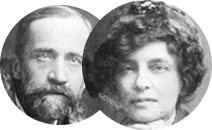
Dmitry Merezhkovsky and ZinaidaGippius
Famous Russian émigré writers who fled to Paris after the revolution.
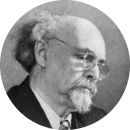
Mikhail Prishvin
The legendary Russian Soviet writer, who sang the harmony of nature and left candid diaries.

Edith Piaf
The famous chansonnier singer, nicknamed "Sparrow", who secretly helped the Resistance.

Charles Aznavour
Legendary French Armenian singer who used his status to help the Resistance.
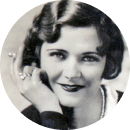
Olga Chekhova
Russian émigré actress, socialite of the Third Reich, an unsolved mystery of the history of Soviet intelligence.
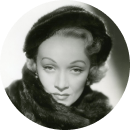
Marlene Dietrich
Film star of the 1920s-1940s. Anti-fascist. The heroine of the brightest novels of the twentieth century.
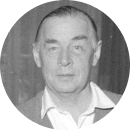
Erich Maria Remarque
Great German anti-fascist writer, personal enemy of the Third Reich.

Marcel Marceau
The legendary French mime, the author of the image of the white clown Bipa and the founder of the French school of pantomime.
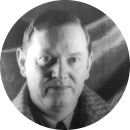
Evelyn Waugh
The largest English writer of the 20th century, master of sarcasm, hero and writer of everyday life behind the scenes of British aristocratic circles.
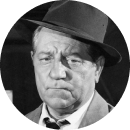
Jean Gabin
The great French actor, the legend of world cinema, the bearer of the role of a "strong man" both on the screen and in life.
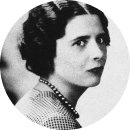
Rebecca West
Britain's most popular writer of her time. Journalist, feminist, who was in a long-term civil marriage with Herbert Wells.
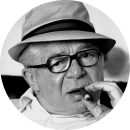
Billy Wilder
Outstanding American director and producer, author of the comedy Only Girls in Jazz.
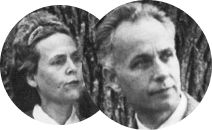
Elsa Triolet and Louis Aragon
An emigrant from Russia, sister of Lily Brik, writer Elsa Triolet and French communist writer Louis Aragon.
Prosecution
Soviet Union
Chief Prosecutor
Roman Rudenko, 38
Prosecutor-General of the Ukrainian SSR
Staff
One deputy, six assistants

Subject matter of statements at the trial
- Crimes against humanity in Eastern Europe
- The plundering of conquered countries
“For every murder, for every drop of innocent blood shed by Hitler’s henchmen, the defendants are responsible, for between them and the direct perpetrators… there is a difference only in rank and scope of action. Those are the direct henchmen, and these are the principal henchmen, the chiefs of the henchmen, henchmen of a higher grade. They are far more dangerous than those trained in the spirit of hatred towards humanity and wild fanaticism, whom they now repudiate in order to save themselves.”
Excerpts from the closing argumentsof July 29-30, 1946
In the 1930s, regional prosecutor Roman Rudenko was a member of the Special Troika, whichhanded down legal verdicts. In 1953, as Prosecutor-General of the Soviet Union, he headed a team of investigators working on the case of Lavrenty Beria and his accomplices. From 1954, he was part of a commission that studied materials on the political repressions of 1935-1940. The commission’s findings formed the basis of Nikita Khrushchev’s secret report On the Cult of Personality and Its Consequences.
United States
Chief Prosecutor
Robert Houghwout Jackson, 54
Associate Justice of the US Supreme Court
Staff
Six deputies, 16 assistants

Subject matter of statements at the trial
- Creating a criminal group and involvement in a conspiracy to seize power
- Turning Germany’s state and public institutions into a tool of military aggression
“Of one thing we may be sure. The future will never have to ask with misgiving, what could the Nazis have said in their favor. History will know that whatever could be said, they were allowed to say. They have been given the kind of a trial which they, in the days of their pomp and power, never gave to any man.”
Excerpts from the closing arguments of July 29-30, 1946
In 1940, while serving as US Attorney-General,Robert H. Jackson helped President Franklin D. Roosevelt draft the Lend Lease Act. Shortly before his death in 1954, he compiled a legal substantiation for the subsequent de-segregation of the education system.
United Kingdom
Chief Prosecutor
Hartley William Shawcross, 44
Attorney General forEngland and Wales
Staff
One deputy, five assistants

Subject matter of statements at the trial
- An aggressive war as a crime
- The violation of international treaties
“From small beginnings, at a time when resistance, instead of participation, could have destroyed this thing, they fostered the Hitler legend, they helped to build up the Nazi power and ideology and to direct its activities until, like some powerful octopus, it spread its slime over Europe and extended its tentacles throughout the world.”
Excerpts from the closing arguments of July 26-27, 1946
A Labour Party activist and a Member of Parliament. In 1945, he oversaw the legal prosecution of British Fascists. In 1950, he oversaw the criminal prosecution of British physicists, on charges of high treason for cooperating with the Soviet Union.,He ended his law career after the Labour government’s defeat in 1951. He retired from politics shortly after and went into business.
France
Chief Prosecutor Until January 1946
François de Menthon, 46
Minister of Justice of the French Republic
Staff
Two deputies, eight assistants

Subject matter of statements at the trial
- War crimes
- Crimes against humanity in Western Europe
Professor of Law. When World War II began, he fought at the front and was taken prisoner. After gaining freedom, he established French Resistance cells. After the war, he headed a number of ministries. In the 1950s, he was President of the Parliamentary Assembly of the Council of Europe. Shortly after, he retired from politics and resumed his career as a lecturer.
France
Chief Prosecutor From January 1946
Auguste Champetier de Ribes, 63
Senator, Member of the French Resistance
Staff
Two deputies, eight assistants

Subject matter of statements at the trial
- War crimes
- Crimes against humanity in Western Europe
“This is a crime so monstrous, so undreamt of in history throughout the Christian era up to the birth of Hitlerism, that the term "genocide" has had to be coined to define it … Nobody in the world can possibly claim that the extermination camps, the executed prisoners, the slaughtered peoples, the mounds of corpses, the human herds maimed in body and soul, the instruments of torture, the gas chambers and crematories – no one can claim that all these crimes existed only in the imagination of anti-German propagandists.”
Excerpts the from the closing arguments of AugusteChampetier de Ribesof July 29, 1946
In 1940, he was among the 80 members of parliament who refused to give full powers to Marshal Petain,head of the puppet government in the occupied France. He was involved in the French Resistance combat operations and became one of the first supporters of Charles de Gaulle. He passed away in March 1947.
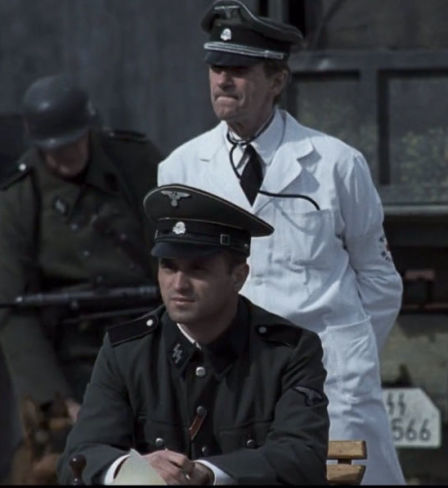
‘Auschwitz’ (2011)
What should one watch if one wants to know about Nuremberg? Which films best capture the essence of the tribunal? Famed film aficionado Lydia Maslova has prepared a unique list of films to accompany the “Nuremberg: Casus Pacis” project. We continue with our series, publishing her recommendations twice a week – the greatest films about the war and its aftermath, from the famous and award-winning, to the niche, but important and meaningful ones.
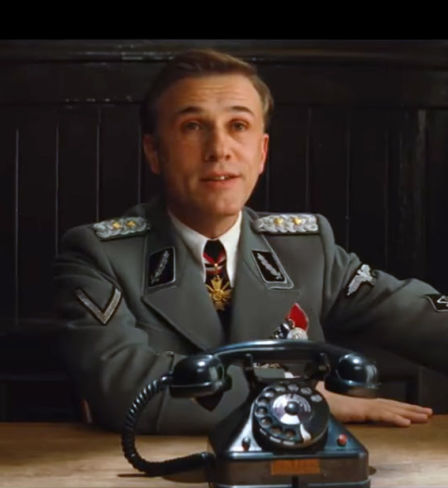
‘Inglourious Basterds’ (2009)
What should one watch if one wants to know about Nuremberg? Which films best capture the essence of the tribunal? Famed film aficionado Lydia Maslova has prepared a unique list of films to accompany the “Nuremberg: Casus Pacis” project. We continue with our series, publishing her recommendations twice a week – the greatest films about the war and its aftermath, from the famous and award-winning, to the niche, but important and meaningful ones.
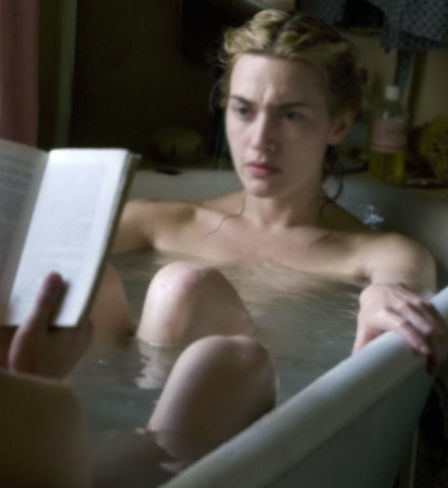
‘The Reader’ (2008)
What should one watch if one wants to know about Nuremberg? Which films best capture the essence of the tribunal? Famed film aficionado Lydia Maslova has prepared a unique list of films to accompany the “Nuremberg: Casus Pacis” project. We continue with our series, publishing her recommendations twice a week – the greatest films about the war and its aftermath; famous and award-winning in the niche, but important and meaningful ones.
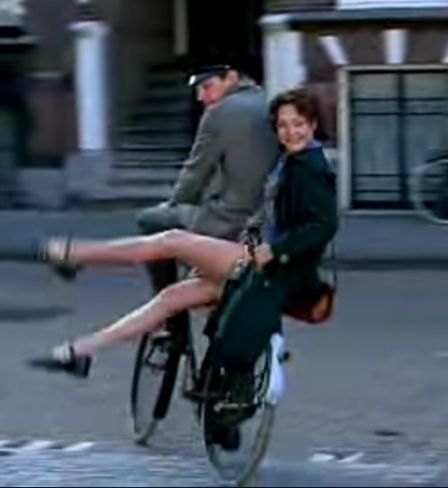
‘Zwartboek’ (‘Black Book’, 2006)
What ought one to watch if one wants to know about Nuremberg? Which films best capture the essence of the tribunal? Famed film aficionado Lydia Maslova has prepared a unique list of films to accompany the “Nuremberg: Casus Pacis” project. We continue with our series, publishing her recommendations twice a week – the greatest films about the war and its aftermath, from the famous and award-winning to the niche but important and meaningful ones.
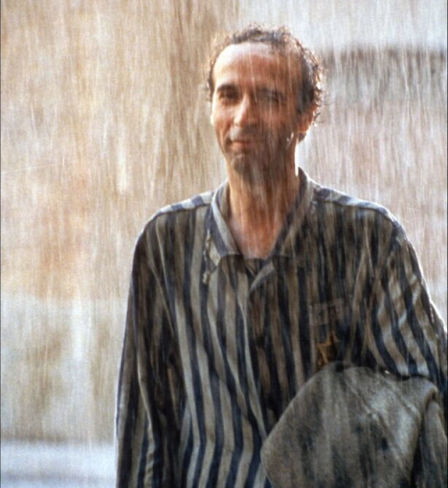
‘La Vita e Bella’ (‘Life is Beautiful’, 1997)
What should one watch if one wants to know about Nuremberg? Which films best capture the essence of the tribunal? Famed film aficionado Lydia Maslova has prepared a unique list of films to accompany the “Nuremberg: Casus Pacis” project. We continue with our series, publishing her recommendations twice a week – the greatest films about the war and its aftermath, from the famous and award-winning, to the niche, but important and meaningful ones.
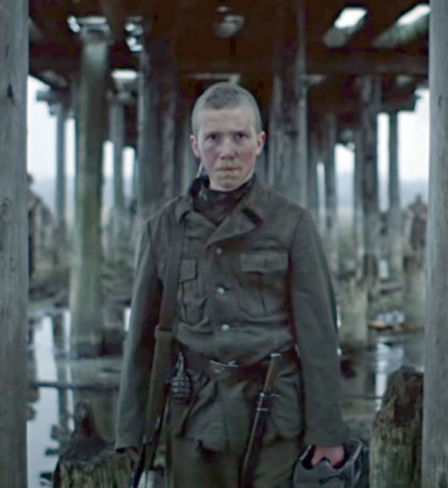
‘Come and See’ (1985)
What ought one to watch if one wants to know about Nuremberg? Which films best capture the essence of the tribunal? Famed film aficionado Lydia Maslova has prepared a unique list of films to accompany the “Nuremberg: Casus Pacis” project. We continue with our series, publishing her recommendations twice a week – the greatest films about the war and its aftermath, from the famous and award-winning to the niche but important and meaningful ones.
